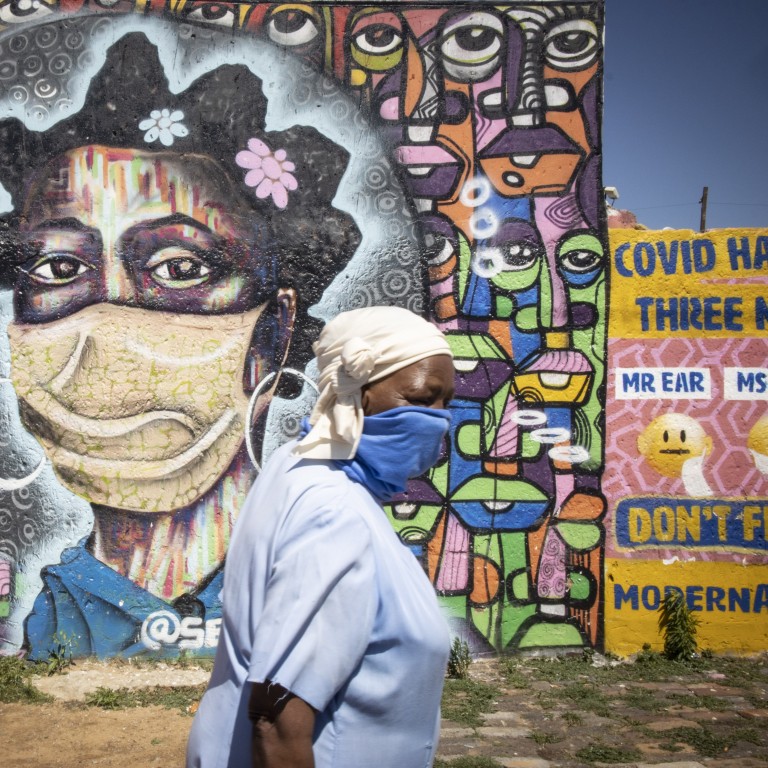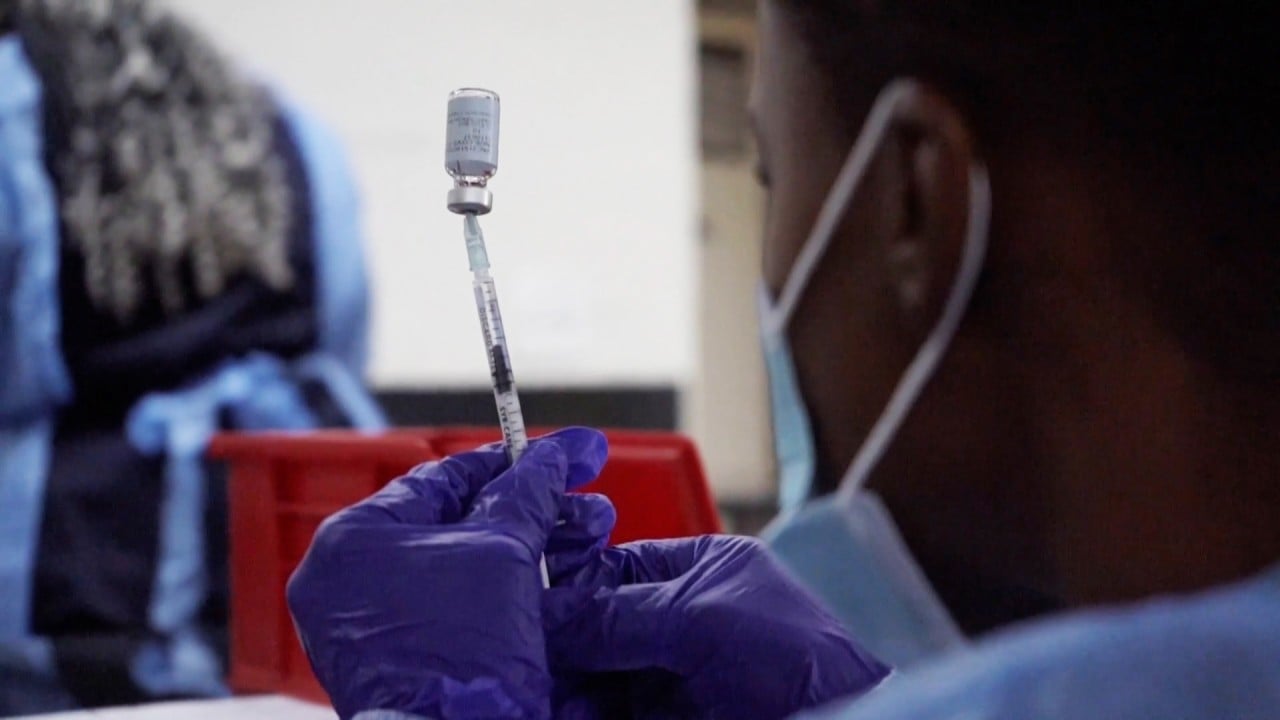
Explainer | Omicron: what we know and what we don’t on symptoms, transmission, and vaccines
- Early data in South Africa suggests heavily mutated ‘variant of concern’ could outpace fast-spreading Delta
- Disease experts are united on the need for more data as well as ramping up vaccination
But the agency has also highlighted “considerable uncertainty” about this assessment, because it is too early for answers to critical questions such as whether Omicron is more transmissible, leads to more severe disease, or presents a higher risk of reinfection or of evading existing vaccines.
Here’s what we do know, and what scientists are doing to work out what we don’t.
Why are scientists worried?
“Omicron has the kinds of mutations that vaccine makers were on the lookout for, and they have been preparing for this kind of scenario,” said immunologist Kylie Quinn, a research fellow at RMIT University in Melbourne, who called the variant’s early detection a sign that surveillance systems were working.
How these mutations work in combination “is something that we need to watch really carefully”, she said.
South Africa says flight bans ‘punishment’ for it finding new variant
Is Omicron more transmissible?
The spike in South Africa – which went from a seven-day average of around 300 new daily cases in mid-November to nearly 2,000 by the month’s end – has raised concerns. But it is not yet clear just how transmissible Omicron is or if any increases in transmissibility are related to the variant’s ability to evade immune defences, its own advantages, or a combination of the two.
“Higher transmissibility is likely,” epidemiologist Salim Abdool Karim said in an online briefing by South Africa’s health department on Monday.
“We are going to get more cases quickly, we are already seeing early evidence of this,” said Abdool Karim, adding he expected an increase in pressure on hospitals due to rapid transmission, even if the symptoms from this variant were not more severe.
Infectious diseases doctor Sanjaya Senanayake of the Australian National University said there could be confounding factors in the early South African data, such as fatigue with Covid-19 disease control measures, and a more complete picture would emerge in coming days.
“We will get more data because we’ll start to see hundreds of cases in countries around the world,” he said.
Local health investigators would then monitor how many people one case goes on to infect, what level of contact was needed for someone to spread the virus, and to what extent vaccinated people were getting infected or ill, he said.
Will existing vaccines protect against Omicron?
Results from such laboratory investigations could take around two weeks, according to RMIT’s Quinn, as scientists build synthetic viruses or grow the real thing to see how it stimulates antibodies in blood serum taken from vaccinated people.
Real world observations about infections in vaccinated people, and comparisons between countries with different levels of vaccination, would add to what these lab studies showed, Quinn said.
Moderna CEO says vaccines likely no match for Omicron variant
Meanwhile, though it is possible existing vaccines will become less effective, as has been seen with the Delta variant, it is highly unlikely the variant would render them useless.
“Even if we see that Omicron evades the vaccine more effectively than Delta, the vaccines are still likely to have a significant impact, particularly on severe disease,” Senanayake said. “The question is by what degree will it be reduced.”
Are Omicron symptoms different?
Doctors in South Africa at the forefront of dealing with this new variant have yet to observe any signs that the variant causes more severe disease.
“But it is early, [hospital] admissions do lag by about two weeks after cases … so this is something we will watch,” Jassat said.
South African general practitioner Unben Pillay, also speaking at Monday’s briefing, said that while he had seen a “very sharp increase” in cases for about 10 days, the symptoms so far had been mild, especially among the vaccinated, and in line with other Covid-19 waves.
“We’ve seen patients present with flu-like symptoms, dry cough, fever, night sweats and general body pains and malaise,” Pillay said, adding that as a general practitioner he would see less severe cases than hospitals.
Early observations of increasing rates of hospitalisation in South Africa may be due to increasing overall numbers of people becoming infected, rather than a result of specific infection with Omicron, but more data was needed, especially on vulnerable people, the WHO said on Sunday.
ANU’s Senanayake said it would also be important to see the impact of the variant in countries with larger elderly populations than South Africa, as this group was known to be most severely affected by Covid-19.
In the meantime, it remained important to get as many people inoculated around the world with existing vaccines to add more protection against the new strain, he said.
“We can’t lose sight of the big picture, which is making sure that the world gets vaccinated.”



